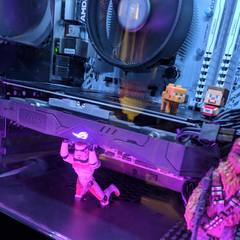Is calc needed for minoring in computer science/programming?
-
Featured Topics
-
Topics
-
0
-
0
-
JewPacaBraZ ·
Posted in Troubleshooting1 -
johnny45 ·
Posted in Linux, macOS and Everything Not-Windows3 -
6
-
Faiyaz111 ·
Posted in Graphics Cards0 -
BigChungus1009 ·
Posted in Troubleshooting3 -
Scorpiopt ·
Posted in Troubleshooting2 -
4
-
ThankGodItsFriday ·
Posted in Programs, Apps and Websites2
-
-
play_circle_filled

Latest From Linus Tech Tips:
I Am Not Buying A Super Computer - WAN Show May 3, 2024


.png.255947720031a641abdac78e663b681c.png)
















Create an account or sign in to comment
You need to be a member in order to leave a comment
Create an account
Sign up for a new account in our community. It's easy!
Register a new accountSign in
Already have an account? Sign in here.
Sign In Now